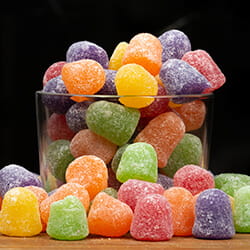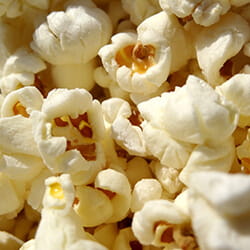Best Tips to Protect Your Youngster From Common Choking Hazards
August 09, 2021
 University Hospitals Rainbow Babies & Children'sExperts in Children's Health
University Hospitals Rainbow Babies & Children'sExperts in Children's Health

As curious young children discover their world, they learn to enjoy new foods and new experiences. But what they put in their mouths can become a choking danger.
“Both food and objects can stick in a child’s throat if swallowed,” says pediatric nurse practitioner Elana Richter, CNP, of UH Rainbow Lorain Pediatrics. “To protect your little one, it’s important to know what foods to avoid, what to keep out of reach and what to do in a choking emergency.”

Choking Hazard: Chunks of meat, cheese or raw vegetables


Safe Eating Habits
In addition, she offers these tips:
- Have your child sit upright in a high chair or at the table.
- Discourage eating and talking at the same time.
- Cut food for babies and young children into pieces smaller than a half-inch.
- Stop your child from running or playing with food in their mouth.
- Do not let your child eat while in the car in a car seat.
Richter also says you should keep these foods off the menu while your child is younger than age 4:
- All nuts and seeds
- Chunks or spoonfuls of peanut and other nut butters – but it’s OK to spread on bread or crackers
- Uncut or round pieces of hot dogs
- Chunks of meat, cheese or raw vegetables
- Popcorn, pretzels, hard chips such as potato chips or corn chips and similar snack foods
- Gummy fruit snacks and marshmallows
- Chewing gum
- Hard or sticky candy
- Whole small raw fruits and veggies, like grapes, cherry tomatoes and baby carrots
- Dried fruit, like raisins. Very dry fruit is hard to chew – consider soaking these foods in water to soften for older toddlers and preschoolers.
- If serving fish, chicken or meat, make sure none of the bones make it on to the plate.
Baby-Led Weaning
Recently there has been a lot of interest in a way of introducing solids to babies that skips the purees and spoons. Often called “baby led weaning,” this approach allows the baby to control what and how much they eat by feeding themselves.
Many parents are concerned this approach could lead to an increase risk for choking. A recent study shows than when comparing babies who received solid food versus those who were fed pureed foods by spoon, there was no increased risk of choking among the babies receiving solid food as long as all the safety principles listed above were still followed.
“The biggest key to avoiding choking incidents in children is supervision during eating,” says Richter. “Don’t be afraid for mealtime to be messy. Babies love exploring color, smell and texture as much as taste of the food.”
Good Housekeeping
Although food is the most common cause of choking in small children, other objects are also a threat.
Keep small household items and toys with small parts out of your toddler’s reach. Be sure to also remove latex balloons (these can pop in child’s face and the child can choke on the remnants), as well as coins, marbles, tiny balls, pen caps, button batteries and refrigerator magnets. Keep dry dog and cat food out of reach of crawling and walking children, as the round small size of kibble is a choking hazard.
Choking Emergencies
Of course, choking can occur even if you take precautions. If that happens, Ms. Richter urges parents and other caregivers to calmly take these steps:
- If your child has a forceful cough and is crying or vocal, let them try to cough the food or object out. Always call 9-1-1 in case the airway ends up completely blocked.
- If your child can't make a sound, looks pale, or is coughing weakly, have someone call 9-1-1 while you do the Heimlich maneuver. Here is a refresher from the American Academy of Pediatrics (AAP) on how to do the maneuver.
- If your child swallows a button battery, a magnet, medicine, or other dangerous substances but isn’t choking or having symptoms, it’s important to call the Poison HELP hotline at 800-222-1222.
Related Links
UH Rainbow Babies & Children’s Hospital has the region’s largest coordinated network of pediatric primary care providers, committed to delivering the very best care to children of all ages. Learn more about pediatric care at UH Rainbow or find a pediatric practice near you.
Tags: Child Safety, Safety, Parenting


